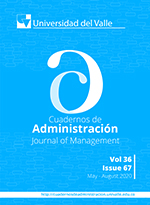Sustainable design of reverse supply chain for solid waste in Mexico
Keywords:
Supply chain design, Reverse supply chain, Development sustainable, Solid waste, Conceptual design, Social responsibility, Recycling, Sustainable designMain Article Content
Supply chains must align their goals with those of sustainable development and modify practices that compromise the ability of future generations to meet their needs. One of the practices that must be modified is the generation of large volumes of Municipal Solid Waste [MSW] that results from a linear production process. Traditional supply chains are jointly responsible for this problem. A circular production process in which the consumption of natural resources is reduced is possible through Reverse Supply Chains. For this, it is necessary to have tools for the sustainable design of MSW recovery networks. The objective of this work is to propose a systems engineering procedure that serves this purpose. The main contribution is the proposal of an explicit and concrete way to conceptually design RSC, useful for decision makers. The procedure consists of four interconnected stages that constitute an interactive system that allow the design from the problem formulation to its validation. The procedure is applied to design a RSC for MSW in the Mexican municipality of Netzahualcoyotl. The designed RSC can move a volume of 420 tons of MSW per day in an urban area of just 50 square kilometers. The scope of this work is a conceptual design that still requires field testing to validate the estimated results and make a feedback process that allows strengthening the conceptual design procedure.
Downloads

This work is licensed under a Creative Commons Attribution-NonCommercial-NoDerivatives 4.0 International License.

